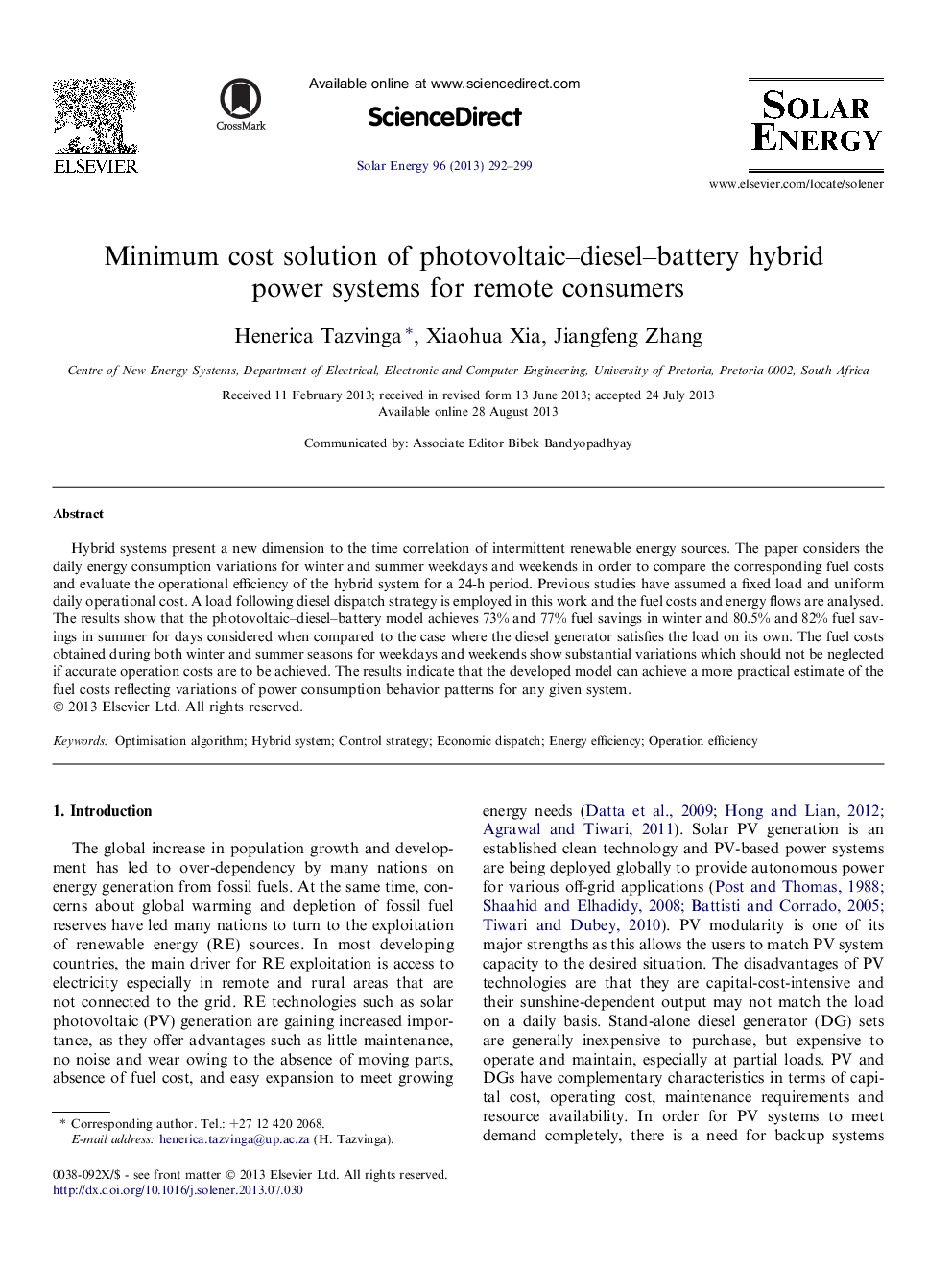| Article ID | Journal | Published Year | Pages | File Type |
|---|---|---|---|---|
| 1550505 | Solar Energy | 2013 | 7 Pages |
Abstract
Hybrid systems present a new dimension to the time correlation of intermittent renewable energy sources. The paper considers the daily energy consumption variations for winter and summer weekdays and weekends in order to compare the corresponding fuel costs and evaluate the operational efficiency of the hybrid system for a 24-h period. Previous studies have assumed a fixed load and uniform daily operational cost. A load following diesel dispatch strategy is employed in this work and the fuel costs and energy flows are analysed. The results show that the photovoltaic–diesel–battery model achieves 73% and 77% fuel savings in winter and 80.5% and 82% fuel savings in summer for days considered when compared to the case where the diesel generator satisfies the load on its own. The fuel costs obtained during both winter and summer seasons for weekdays and weekends show substantial variations which should not be neglected if accurate operation costs are to be achieved. The results indicate that the developed model can achieve a more practical estimate of the fuel costs reflecting variations of power consumption behavior patterns for any given system.
Keywords
Related Topics
Physical Sciences and Engineering
Energy
Renewable Energy, Sustainability and the Environment
Authors
Henerica Tazvinga, Xiaohua Xia, Jiangfeng Zhang,
